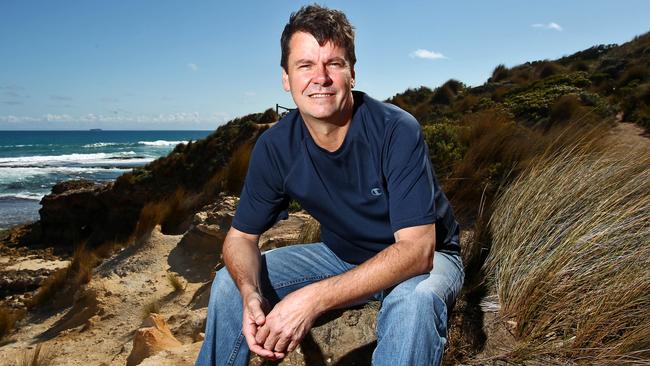Monash University biomedical researchers claim antibacterial soaps are creating ‘superbugs’
Australian biomedical researchers say a rise in potentially deadly superbugs has been flying under the radar, and one household product is to blame.

NewsWire
Don't miss out on the headlines from NewsWire. Followed categories will be added to My News.
Australian biomedical experts have warned antibacterial soaps are behind a global rise in superbugs that can cause untreatable and even fatal infections.
Monash University has been tracking the emergence of bacteria that are resistant to cleansing by antimicrobial treatments.
The bacteria have only become more stubborn during a worldwide increase in the use of antibacterial soaps and sanitisers due to COVID-19.
Professor Trevor Lithgow, from Monash University’s biomedical research institute, backed up claims by the World Health Organisation and US Centre for Disease Control that an estimated 10 million people would die every year from AMR infections from now until 2050.
It is why his team of 200 researchers are heavily investigating how bacterial pathogens, or superbugs, have developed antimicrobial resistance (AMR) that allows them to cause untreatable and sometimes deadly infections.
“The evolution of AMR phenotypes has been moving unchecked for the past few decades,” Professor Lithgow said.
“If I wash my hands constantly with antibacterial or antimicrobial soaps, the microbes that live on my hands will be constantly barraged by antimicrobials, and they’ll become superbugs.
“So I end up carrying superbugs with me wherever I go. Then, if I were to cut my hand in the garden, the thing that goes into my bloodstream is whatever was on my hands at the time.
“If those are drug-resistant bacteria, it doesn’t matter how fast I get to hospital – I have an untreatable infection.”

Professor Lithgow said the rise in the use of antibacterial soaps was likely a marketing ploy aimed at exploiting concerns about the spread of COVID-19.
“What purpose do (antibacterial soaps) serve?” he said. “I have tried to think about this and figure out whether there’s an industry reason other than a marketing advantage.
“It makes people think it’s a better product; but it’s a false logic and a misunderstanding people have. Create a problem, then create a solution. Great advertising but bad for us.”
Monash University last year started phasing out antimicrobial and antibacterial soaps on its campuses.
He said traditional soaps were fine and consumers should avoid antibacterial additives that were doing more harm than good.

“The message is, soaps are good. Keep using them and keep washing your hands,” he said.
“The soaps that we buy come in two formulations, one with an added chemical and the other without the added chemical.
“The soap, which is what does all of the cleaning, is the same active product in both cases.
“But antibacterial additives in soap are not good. You don’t need them, so don’t buy the soaps that include them.
“You don’t want to be cultivating drug-resistant bacteria … and superbugs.”
Originally published as Monash University biomedical researchers claim antibacterial soaps are creating ‘superbugs’



